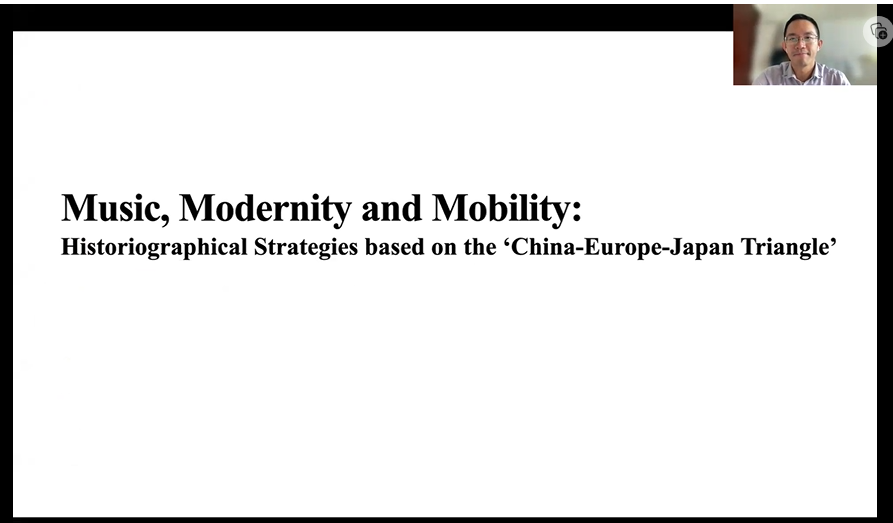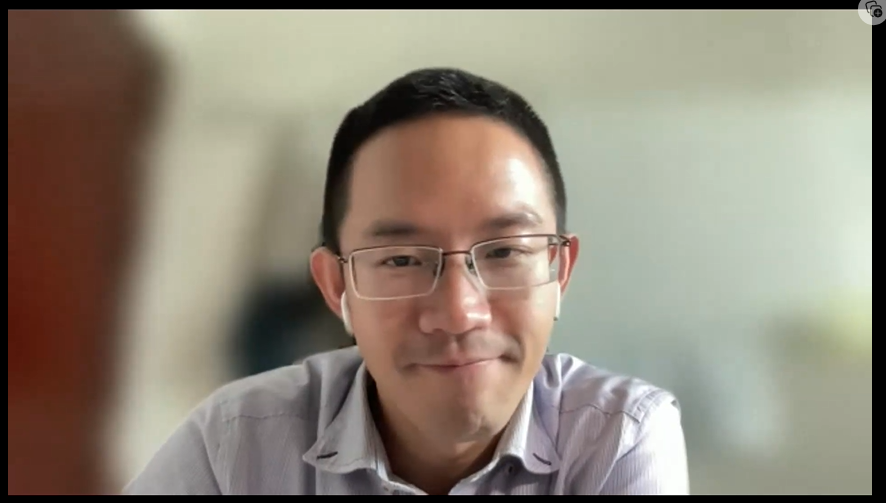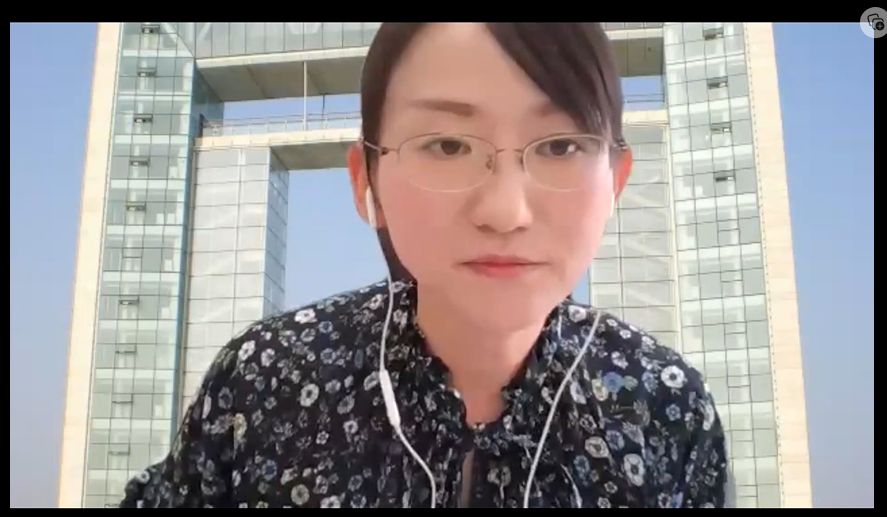The EAA Lecture, cohosted with GAS, titled “Music, Modernity and Mobility: Historiographical Strategies Based on the ‘China–Europe–Japan Triangle’ took place on September 24, 2023, from 10:00 AM to 11:30 AM (JST).
The speaker, John LAM Chun-fai 林鎮輝, is a Hong Kong-based researcher. He earned a Doctor of Philosophy in Music from the Chinese University of Hong Kong. With a grant from the Japan Foundation, he studied materials in Japan as a visiting researcher at the Institute for Advanced Studies on Asia, The University of Tokyo. Additionally, he has gained extensive experience as a lecturer and visiting researcher in Germany. Most recently, he has visited the State Institute for Music Research (Berlin) and the International Research Center for Japanese Studies (Kyoto).
He is currently undertaking a project funded by the Sumitomo Foundation. With an emphasis on comprehensive musicianship and intercultural dynamics between Europe and East Asia, his endeavors aim to contribute toward emergent approaches to nonlinear historiography in music studies.


In the lecture, he first mentioned two books and explained the importance of the recent trend toward global perspectives in historical musicology. In the early decades of the 20th century, German music conservatories and universities nurtured young talents from East Asia. What kinds of cultural exchanges took place in Berlin and Leipzig? In what ways did the East-Asian students interact with important figures in music and various academic fields? To what extent did those fields overlap with and transform each other?
Musical interactions within ‘China–Europe–Japan Triangle’ network – under in-depth examination not as purely separate bilateral dynamics – take shape across space and evolve over time. His examination of multiple, parallel, and shifting geopolitical standpoints brings together important textual resources in various written languages along with rare archival materials in an array of musical languages. A formulation of the ‘China-Europe–Japan triangle’ as embodied relationalities reveals what can be called ‘semipermeable musical minds’ at work in 20th-century cross-cultural perception, representation, and reinvention.
Dr. Lam picked up four examples: Hugo Riemann – Andō Ko 安藤幸; Xiao Youmei 蕭友梅 – Riemann; Erich Moritz von Hornbostel – Yoshimoto Kozo 吉本光藏; Wang Guangqi 王光祈 – Hornbostel. How did the two pairs of music students from China and Japan contribute to the trilateral dynamics between the two interrelated countries with Germany through cultural exchanges in Berlin and Leipzig, and more specifically, through their interactions with important figures in music and various academic fields, which overlapped with and transformed each other to different extents since the early 20th century? Through the analysis of many documents, he explored this problem on the interpersonal, cross-cultural, and trans-disciplinary dimensions.
After his lecture, Yuki Tanaka (IASA) commented on the characteristics of Dr. Lam’s research by comparing it with research by Japanese scholars on modern Japanese and Chinese music. His research focuses on Germany–Japan–China but does not focus on any one or two of these three regions, but rather draws out the influential relationships among these three countries through careful reading of the documents. It is also important that he has spent time in China, Japan, and Germany and actively collected many new documents. His work can be an important work to rethink the fundamentals of Eurocentric attitude in music research.

During the discussion time, he was asked about several issues. For instance, how did Xiao Youmei’s musicology place among German musicologists at the time? How did Xiao Youmei’s experience in Japan influence his research of Chinese music? How did Berlin scholars feel about the narrowness of semitone in East Asia at the time? He answered all the questions sincerely, and participants could rethink the fact that modern European and East-Asian music histories are developing in a reciprocal exchange.
Reported by Yuki Tanaka (Institute for Advanced Studies on Asia)








